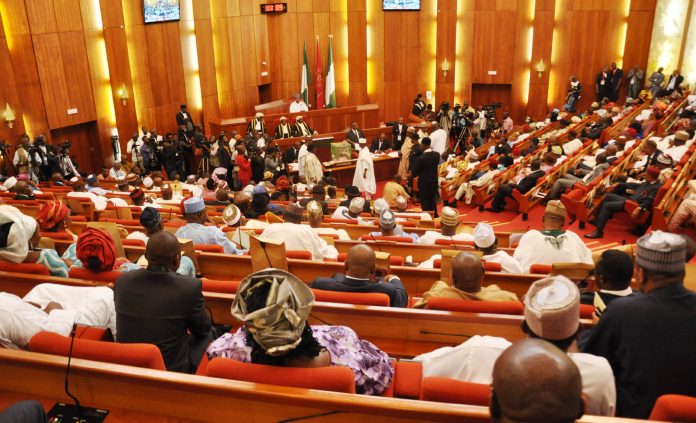The Senate has commenced legislative processes of plugging revenue wastages associated with foreign medical trips by Nigerians, particularly of top government functionaries, with the consideration of a bill sponsored for the purpose.
The bill titled ‘Federal Medical Centres (Establishment) Bill, 2021’ was sponsored by Senator Aishatu Dahiru Ahmed.
Leading debate on the bill, the sponsor said the absence of a legal framework for the regulation, development and management of Federal Medical Centres to set standards for rendering health services was responsible for hindering the provision of intensive, effective and efficient health care services to the people of Nigeria.
According to her, “this has led to a number of challenges in the health sector including but not limited to under-funding, weak facilities and infrastructure, poor motivation of health workers, low budget, weak accountability, conflicts with the political structure of the states and industrial strikes which has led to inadequacies, shortcomings and weaknesses which hinder effective health care delivery services.”
Ahmed argued that the passage of the bill will reduce the number of Nigerians who have to go to other countries for medical care.”
The lawmaker further noted that the Bill, if passed into an Act, would also address remuneration of the employees of the Medical Centers which in turn would check the exodus of doctors and nurses to other countries.
She said: “Seventy-seven percent of black doctors in the US are Nigerians and there is rarely any top medical institution in the US or Europe where you don’t find Nigerians managing at the top level.
“Hardly a year passes without a major national strike by nurses, doctors, or health consultants. The major reasons for these strikes are poor salaries and lack of government investment in the health sector”, Ahmed added
Citing a report of the United Nations International Children’s Emergency Fund, Ahmed stressed that the bill would “improve on the persistent rate of avoidable deaths of all Nigerians.”
She pointed out that a recent UNICEF report indicated that “preventable or treatable diseases such as malaria, pneumonia, diarrhea, measles and HIV/AIDS account for more than 70 percent of the estimated one million under-five deaths in Nigeria.”
The lawmaker projected that with the right data, Nigeria would witness improvements to the health information system, regular and sustainable population and health-facility-based surveys; as well as have a centralized management of the many challenges of the 23 Federal Medical Centers in the country.
Contributing to the debate, Senator Yahaya Oloriegbe, said Federal Medical Centres were incapacitated as a result of the absence of legal backing establishing them and insufficient funding.
He clarified: “We have about twenty-three Federal Medical Centres that were established across the country, but without legal backing. The consequence of such is that there are, what I will call policy somersault as regards the operations of these centres.
“You see some of the centres that have enough facilities and manpower to even be termed a Teaching Hospital, but because the legal framework did not state the standard, in terms of infrastructures, manpower and services, they remain like that, and it becomes at the whims and caprices of the policy makers in the Federal Ministry of Health.
“The consequences in terms of funding allocation, Federal Medical Centres receive less fund compared to Teaching Hospitals”, the lawmaker added.
In his contributions, Senator Ibn Na’Allah said the bill was timely as it seeks “to ensure that all institutions of government are governed by law”, adding that Nigeria “cannot continue to operate a democracy where public funds are disbursed to institutions that are not recognize by law. That is not right.”
After scaling Second Reading, the Senate President, Ahmad Lawan, referred the bill to the Committee on Health for further legislative work and report back in four weeks.




